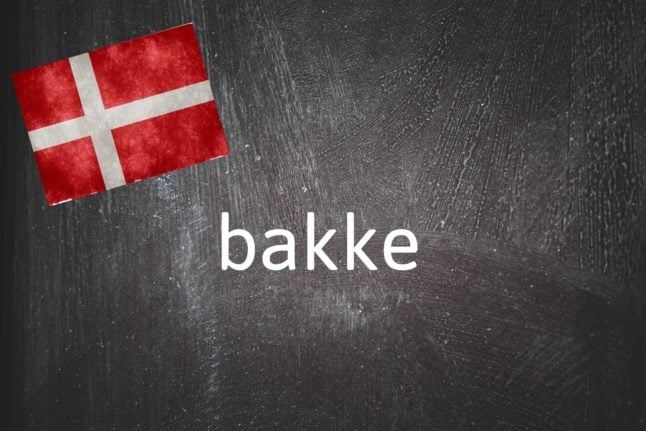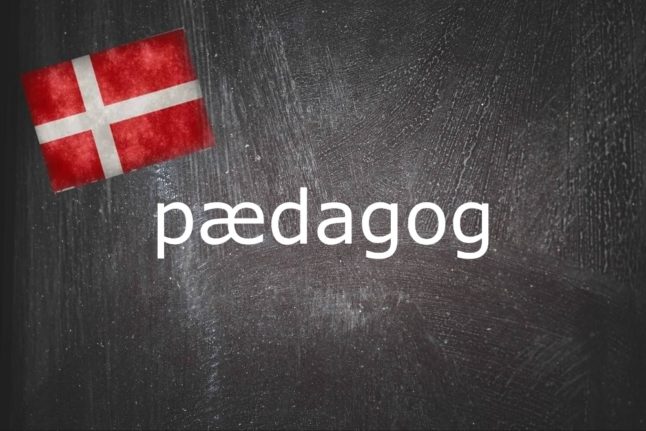What is bakke?
When you think of the word bakke in Danish, the first thing that comes to mind is probably a hill or a slope, as this is the meaning of the noun bakke. The hill in question might be an actual hill, on which you could walk up one side and down the other; or it could also just be a slope on a road. You might hear someone referring to having to cycle op ad bakken hele vejen (“uphill all the way”) on their journey to or from work or school.
This is not the only meaning of bakke, though. It is also a verb: at bakke (“to back”) can be used in the context of both “backing” or reversing a vehicle; or “backing up” (bakke op), meaning to support someone through either practical help or stating you agree with their viewpoint or suggestion.
More obscurely, you can also bakke på en pibe, meaning to repeatedly puff on a pipe.
It can also be used in a metaphorical sense. To say something is going op ad bakke (literally “uphill”) can be used to express adversity or difficulty. The opposite phrase, ned ad bakke (“downhill”) does not however mean something is going well, but rather that its condition or situation is getting worse.
There are also other meanings of bakke as a noun. A bakke can be a tray, for example on which you carry and place food and drinks, or a disposable container for carrying or transporting food, such as from takeaways restaurants (æske is also commonly used to refer to this type of container).
Why do I need to know bakke?
We’ve previously written about Danish homophones, words that are pronounced in the same way as another but have a different meaning.
Bakke is an example of several homographs — words that are spelled the same but which differ in meaning or pronunciation. All the various versions of bakke are pronounced the same, so it’s just the meanings that vary.
No other word in the Danish dictionary has more homographs than bakke. There are seven different official ones. These include all of the meanings described above, but the most bizarre is its use as an approximation for “speaking” in bakke snagvendt. This is a Danish ‘spoonerism’, an intentional switch of the initial consonants of two consecutive words: in this case snakke bagvendt or “speak facing backwards”. The expression itself means to swap letters or vowels in words for fun.
Examples
Løbets sidste 500 meter gik meget op ad bakke, og det jeg kunne virkelig mærke i benene.
The last 500 metres of the race were very uphill, which I really felt in my legs.
Et flertal i folketinget bakkede ikke op om regeringens forslag om at hæve aldersgrænsen for at købe cigaretter.
A majority in parliament did not support the government’s proposal to increase the age limit for buying cigarettes.
Det er gået ned ad bakke for VB i en længere periode, så nedrykningen kommer ikke som en overraskelse.
Vejle FC have been struggling for some time, so their relegation did not come as a surprise.



 Please whitelist us to continue reading.
Please whitelist us to continue reading.
Member comments